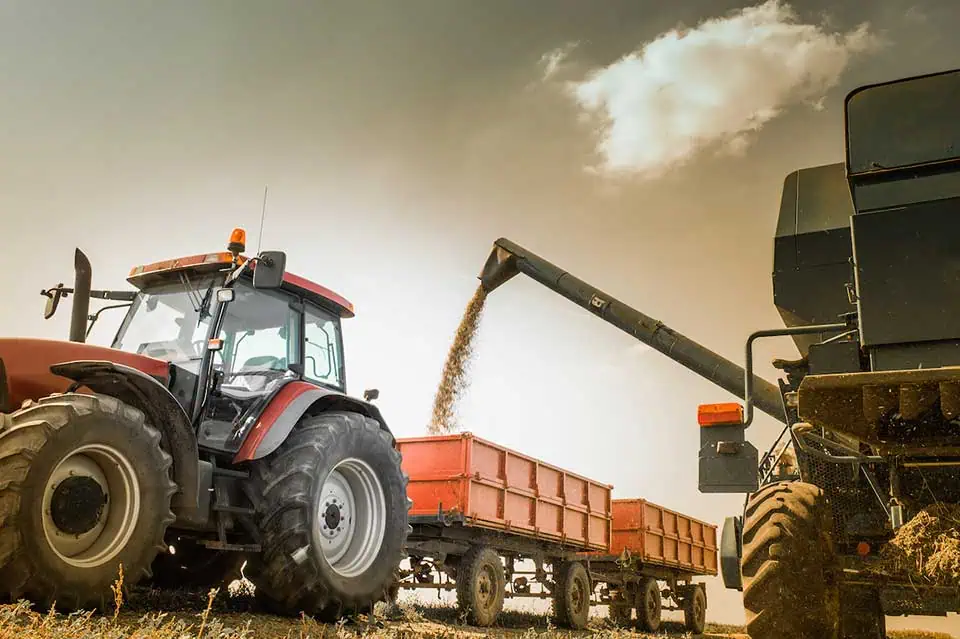For many people, Fall means changing leaves, the last hikes of the season, and seasonal foods coming out taking advantage of the last real fruit season of the year. Fall for farmers means harvest season and this seasonal employment carries a good deal of risk which Greeley workers’ compensation attorneys and Greeley workers’ compensation lawyers help employees with.
Emma Misener, who works for Misener Family Harvesting, based in Elk-County, Oklahoma, says “If you have not had a dangerous encounter while hauling or driving in convoy, I am not sure you can call yourself a harvester!” Combines move across almost all lanes of highways moving from field to field to harvest and accidents seem almost inevitable. These jobs are dangerous from a workers’ compensation perspective to begin and if you add the risk of auto accidents, the risk balloons enormously.
Denver workers’ compensation attorneys would be the first to say this harvesting safety problem is universal and as long as people are unsafe on the roads, the risk is inevitable. Just this year, Tracy Zeorian, who works harvesting in Manley, Nebraska, says “The non-harvest traffic is always in a hurry. They have no patience for the slower moving equipment traffic—whether loaded on trailers or ‘roading’ the combines…this impatience tends to create problems for our industry. There have been way more accidents than there should have been this past summer.”
Many crews try to prevent accidents by taking pre-emptive measures. These measures are important from a workers’ compensation perspective as well as a general job-safety perspective because when a worker goes to work, it’s the employer’s job to make sure every rational and foreseeable precaution was taken to avoid accidents. Some things happen outside of the employer’s control, like distracted drivers who move too slowly to avoid collisions, or freak equipment malfunction, but in general, employers have a responsibility for keeping their workers safe.
Every company has its own procedure and set of rules to keep workers safe and this varies from industry to industry. In inherently risky businesses like harvesting, employers take out different types of insurance, as well, in order to mitigate the damage of any type of injury on or off the job for workers. High Plains Harvesting, from Kansas, for example, has carrying liability insurance, cargo insurance, workers’ compensation, and individual unit insurance. This is complicated for harvesting companies that service multiple states because there are different state guidelines for each of those insurance types. Making things clearer is a job Denver workers’ compensation lawyers are called in for frequently. Injuries and insurance coverage can sometimes be straightforward but what about in the case of a Kansas company that services Colorado for an injury that occurred on the job in Colorado?
Related: Independent Contractors- Defining Workers’ Rights When It Comes To Workers’ Comp & Disability
Hauling oversized loads and equipment require specialized trailers with proper weight-bearing technology so the harvesters don’t create risky situations on the road. Each permit for an oversized load and fuel for the trailers has to go through each state the trailer will travel through. Every piece of equipment is individually licensed and insured for harvest, to cover the liability for farmers who need the equipment to harvest and the company, which has to also keep in mind routes, construction, and the varying state-to-state laws. Harvesting, which was a complicated business to begin with, seems to tangle into a complicated knot with innumerable factors and details that require closer attention paid to safety than vast swathes of other industries. Even before the trip is made, the route is mapped out for trailers, including such details as construction zones. Some construction zones only allow 10-foot wide combines when most combines, when fully loaded, are 14-feet wide. Mere transportation of equipment for harvesting emerges as a finely-crafted ballet with massive checklists which ensure worker safety as well as safety of other drivers. Most harvesters have to make two trips to adhere to all of the standards, which increases the time they’re on the road with normal drivers making their commute. The first trip is usually a scouting trip and the second is the pre-planned route.
Road safety should be a priority for drivers in general. After all, when we use public roads, we enter an unspoken agreement to behave prudently and minimize risky behavior. As with construction workers, however, it seems our road safety choices influence the work lives of harvesters as well. It can be annoying to be stuck behind a large trailer bearing an oversized load but injuring the driver in the course of their work is not excusable. Unfortunately, dealing with risky drivers looks like another work hazard faced by harvesters and harvesting companies.
Workers’ Compensation can be difficult, confusing, and very complex. Kaplan Morrell has helped thousands of injured workers since 1997 get the benefits they deserve. Contact us here or call us at303-780-7329 for your free consultation.


